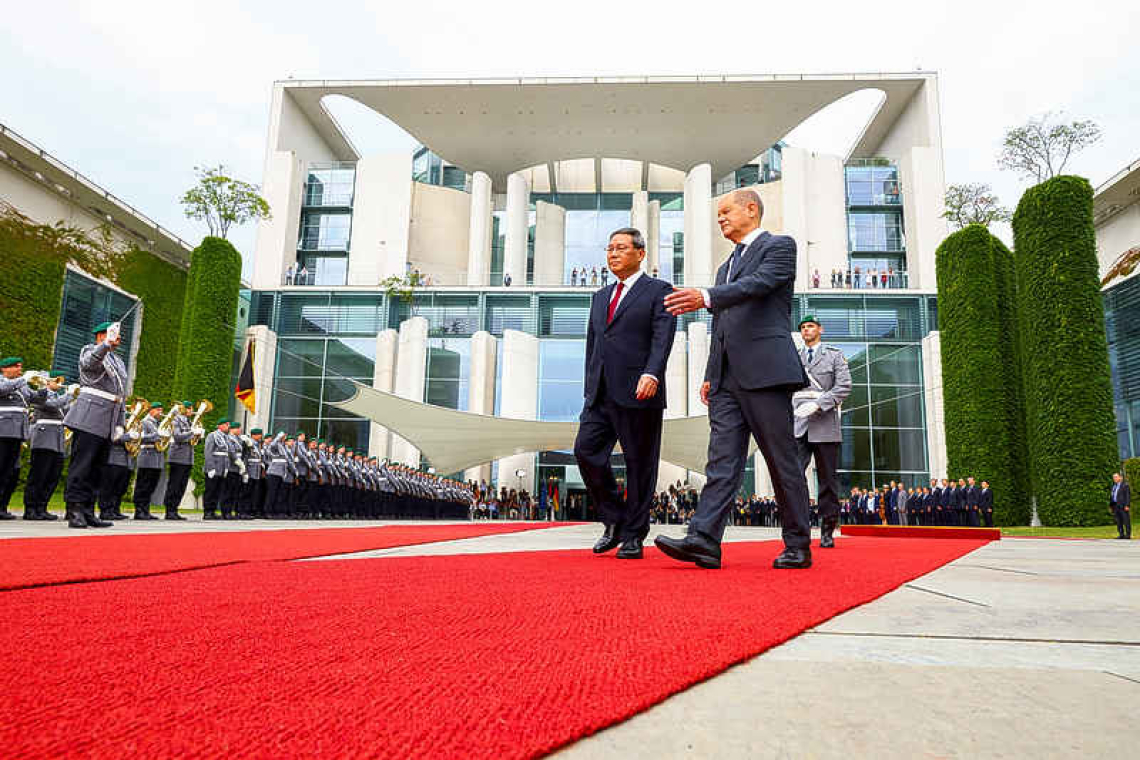BERLIN/BEIJING--German Chancellor Olaf Scholz said on Tuesday it was more important than ever to hold direct talks with China given the pile-up of global crises, despite an emerging consensus in the West on the need to "de-risk" from Asia's rising superpower. Scholz has come under fire for hosting intergovernmental talks in Berlin with a large Chinese delegation led by Premier Li Qiang in the first face-to-face summit since the pandemic. Critics say the symbolism is not appropriate anymore given rising geopolitical tensions between the West and China. The talks came the same day the European Union executive presented its economic security plan which seeks to convince the bloc's 27 states to agree stronger controls on exports and outflows of technologies that could be put to military use by rivals like China. Germany's domestic intelligence agency also warned in its annual report on Tuesday that China represented "the biggest threat in regards to economic and scientific spying as well as foreign direct investments in Germany".
But Scholz defended his decision at a joint news conference with Li in Berlin - itself contentious for not allowing any questions from journalists, contrary to usual custom. "Direct dialogue, personal talks, a real discussion - all of that is more important than usual in this unusual time full of global challenges and crises," the Social Democratic chancellor said. The COVID-19 pandemic, which disrupted supply chains worldwide, showed that Germany needed to work closely with China on a range of global issues including health, Scholzadded. The talks followed a rare visit to Beijing by U.S. Secretary of State Antony Blinken, who was seeking to calm down U.S.-Chinese tensions. "It allows us to discuss questions directly with one another where we have different opinions and differences," said Scholz. Scholz said he had urged China to exert more influence on Russia over its invasion of Ukraine, and to improve market access and fair competition for German companies in China. China experts like Noah Barkin at Rhodium Group, however, said the news conference was more notable for what Scholz did not mention - de-risking, Taiwan, Xinjiang and Hong Kong - than what it did. "It looked very much like an Angela Merkel presser from circa 2019," Barkin said, referring to the ex-German chancellor.
"De-risking" denotes a Western effort to reduce risky dependence on China, particularly for critical minerals and products required for its green transition, and curb Chinese access to sensitive European high technology. Germany has taken a tougher stance on China over the past year but China hawks say Berlin is still compromised by its heavy economic reliance on Beijing, with corporate titans lobbying Berlin not to go too far. China became Germany's single biggest trade partner in 2016 and is a core market for top German companies including Volkswagen, BASF and BMW. Companies, not governments, should take the lead on managing risk, Li told a meeting of top German CEOs on Monday, according to the official Xinhua news agency. Divisions within Scholz's government over how to deal with the world's second largest economy have delayed the publication of a China strategy, sources familiar with the matter have said.







